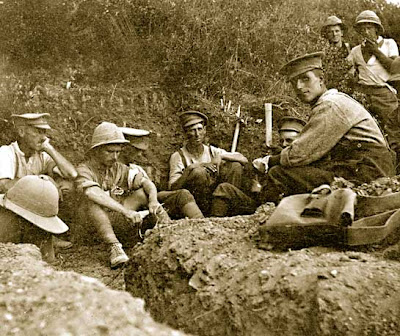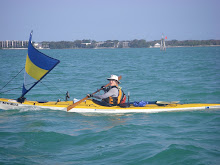Age shall not weary them, nor the years condemn.
At the going down of the sun and in the morning
We will remember them.
Anzac Day, on 25 April (which is today in NZ), is commemorated as the anniversary of the 1915 landing of New Zealand and Australian troops during the First World War at Gallipoli, on the western coast of Turkey. Many will remember the campaign as a shocking mess, with elderly British army leaders sending the young Aussie and Kiwi soldiers off to their deaths.
Anzac Day commemorates New Zealanders killed in war and to honour returned servicemen and women. The day has similar importance in Australia, New Zealand's partner in the Australian and New Zealand Army Corps at Gallipoli and, in many respects, the campaign played an important part in fostering a sense of national identity for both NZ and Australia.
By the time the eight-month long Gallipoli campaign ended, over 120,000 men had died: more than 80,000 Turkish soldiers, 44,000 British and French soldiers, and over 8500 Australians. Among the dead were 2721 young New Zealanders, about a quarter of those who had landed on the peninsula.
Mel Gibson’s 1981 film, Gallipoli, which I sob through the ending, is a poignant salute to those who fell. The Turks remember as well. When I visited Turkey in 1990, showing my NZ passport, they refused to accept the visa entry fee.
Shortly after my dad’s mum emigrated from Edinburgh in the early 1900s – I remember her as a dour Scots woman – she lived in Middlemarch in the South Island, and was nanny to a well-to-do local family. It was rumoured that the father of the family committed suicide by jumping from his bell tower. He had been one of the generals at Gallipoli.
Anzac Day’s something special in NZ. It’s a day of remembering, a
 nd the poignant saying for the day has long been “lest we forget”. Many folks buy the red poppy sold by the Returned Services Association (RSA) to pin to their lapels, representing Gallipoli’s red poppies. Dawn memorial services are held throughout the country, and a growing number of young Kiwis and Aussies join these services, as well as making the yearly pilgrimage to Gallipoli itself.
nd the poignant saying for the day has long been “lest we forget”. Many folks buy the red poppy sold by the Returned Services Association (RSA) to pin to their lapels, representing Gallipoli’s red poppies. Dawn memorial services are held throughout the country, and a growing number of young Kiwis and Aussies join these services, as well as making the yearly pilgrimage to Gallipoli itself.The Anzac
 Day ceremony is rich in tradition and ritual. It is, essentially, a military funeral, with all the solemnity and symbolism such an event entails: uniformed service personnel standing motionless around a memorial, with heads bowed and weapons reversed; a bier of wreaths laid by the mourners; the chaplain reading the words from the military burial service; the firing of three volleys; and the playing of the Last Post, followed by a prayer, hymn, and benediction.
Day ceremony is rich in tradition and ritual. It is, essentially, a military funeral, with all the solemnity and symbolism such an event entails: uniformed service personnel standing motionless around a memorial, with heads bowed and weapons reversed; a bier of wreaths laid by the mourners; the chaplain reading the words from the military burial service; the firing of three volleys; and the playing of the Last Post, followed by a prayer, hymn, and benediction.NZ’s last WWI soldier died a few years ago - my late grandfather, my mum's dad, lost two brothers in WWI, one from the effects of mustard gas - and those veterans from WWII are slowly passing away too. My dad, at 86, is still hanging in there though. He served in the Pacific, at Guadalcanal in the Solomon Islands, and Green Island.
Lest we forget.





3 comments:
Excellent post. That particular operation was Churchills major folly. A very good novel on aging and inept British WWI generals is CS Foresters, "The General". Will our 'leaders' ever learn!? My grandfather was in WWI, Father in the 9th USAAF in WWII, and I have a son, a Humvee gunner, just back from Iraq. I missed military service; #248 in the Vietnam draft. Treasure your dads company and experiences while you have him.
Thanks for your thoughts, daveo. And thankgoodness your son returned safely. I was listening to NPR this morning and an interview with Mary Tilman - I hope that mess regarding Pat gets cleared up - another very sad story.
Good post, Kristen. The battle at Vimy Ridge in WW1 is seen as Canada's 'coming of age'. Like the Gallipoli fiasco, I am horrified that some people see a battle in which thousands lose their lives as a "defining" moment. It's so sad given the wonderful things which define both of our countries as a people where no one died and many lives were enriched. I think of one of NZ's 'defining' moment as their winning of the America's Cup out of the clutches of the Newport elite. Canada had one of it's day during Expo '67. Those are just two examples of what makes our two countries what they are today. Battlegrounds ought to be sad lessons learned, not places which define us, in my opinion. So, "Lest We Forget", indeed, let us not ever!
Post a Comment